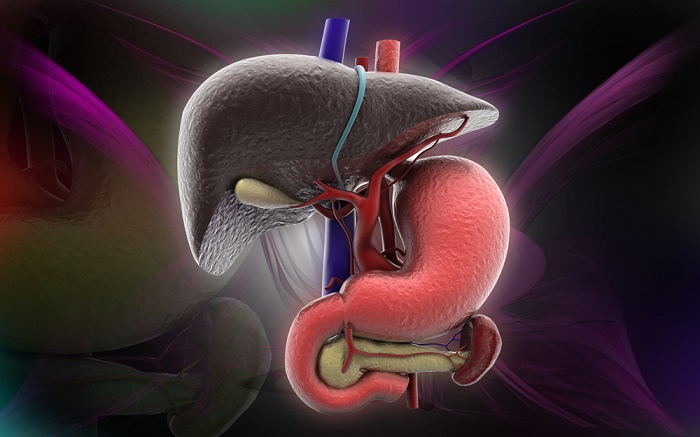Pollen allergy: symptoms and natural solutions

Spring has arrived. If you are one of the millions who suffer from a pollen allergy, you know that it is allergy season too. You may love the sunshine and the beauty of the trees and flowers, but most likely you won’t be able to enjoy them due to sneezing, runny nose, cough, watery eyes, and other symptoms of pollen allergies.

You don’t have to suffer from these pollen allergy symptoms any more this season. You can reduce your risk and symptoms of pollen allergies by using some simple natural solutions.
Table of Contents
What is a pollen allergy?
Pollen allergies are caused by pollen, which are small, egg-shaped powdery grains that are released from flowering plants. Pollen is carried by the wind, bees and other insects from one plant to another to fulfill its essential reproductive function.
This is best for our plants, however, when pollens fly through the air, they can land on the eyes, nose, lungs, and skin, and can cause allergic reactions.
Since different plants bloom at different times, depending on the type of pollen you are allergic to, you may only have allergies during a certain time in spring or summer. People with various pollen allergies can experience symptoms throughout the spring and summer.
Pollen allergy seasons.
Spring allergies tend to be caused by trees, most commonly oak, olive, elm, birch, ash, hickory, aspen, sycamore, maple, cypress, and hickory.
Pollen allergies in late spring or early summer are usually caused by pollen from herbs. As with spring allergies, your allergies can be directly affected by where you live.
Pollen allergies in the late summer and fall are usually caused by pollen from weeds. Again, these allergies can depend on your location. The most common weed pollen allergies in North America include ragweed, mug wort, Russian thistle, and cockle. In certain areas of the world, some trees can also pollinate in the fall.
Pollen allergy symptoms.
While some of the most common problems that pollen allergies cause are sneezing, a runny nose, and coughing, they can cause a variety of other symptoms. The symptoms of pollen allergy may include:
- Sneezing.
- Runny nose.
- Nasal congestion.
- Cough.
- Crying eyes.
- Red eyes.
- Itchy throat.
- Wheezing.
- Urticaria.
- Stomach aches.
- Fatigue.
- Irritability.
- Skin itch.
A balanced immune response is key.
Although most people do not associate gut health with allergies, the most common problem that can increase your symptoms or make you more prone to allergies is disturbed and unbalanced gut flora.
Your gut microbiome is responsible for 70 percent of your body’s innate immune response and allows your body to differentiate between safe environmental particles, including pollen, grass, and dust, and unsafe environmental particles, such as bad bacteria, viruses, and unsafe yeasts. healthy.
When the gut flora is disturbed early in life, it can lead to poor immune coordination and hypersensitivity to safe environmental particles. This can not only increase your risk for pollen allergies and other seasonal allergies, but also increase your risk for asthma, autoimmune diseases, and chronic inflammation.
While many people with a pollen allergy have allergies from childhood or adolescence, it is certainly possible to develop pollen allergies later in life or experience a worsening of symptoms as you age.
It is also possible to reduce your symptoms and even eliminate your pollen allergies through proper immune support.
Natural solutions to pollen allergies.
If you’ve been dealing with pollen allergies, we have good news for you. You can reduce or even eliminate the symptoms of your pollen allergies without medication.
Your lifestyle plays a huge role in the way your immune system acts and responds to the environment. Certain lifestyle practices will help balance your immune response and dampen allergic reactions. These are the most recommended natural solutions:
Anti-inflammatory diet.
You may be wondering what your diet has to do with allergies caused by pollen. The truth is that your diet has to do with everything that happens in your body.
Having an inflammatory diet rich in sugar, simple carbohydrates, refined oil, conventional dairy, gluten, processed foods, junk food, and artificial ingredients increase inflammation in your body.
An inflammatory diet, especially when it’s high in dairy and gluten, can also increase mucus production and sinus problems.
On the other hand, it also compromises your intestinal flora, further increasing your risk and symptoms of pollen allergies.
To reduce the risk of having a pollen allergy and reduce symptoms, it is best to eat an anti-inflammatory diet rich in nutrients. Cut out inflammatory foods like sugar, refined oil, conventional dairy, gluten, conventional animal products, and any processed or junk foods.
Eat nutrient-dense anti-inflammatory foods, such as green leafy vegetables such as kale, spinach, and chard, greens, such as cucumber, celery, and asparagus, low-glycemic fruits, such as lemon, lime, and berries, and herbs and spices , etc.
Consider foods low in histamine.
Histamine is an important neurotransmitter and an immune messenger molecule. It is essential for the healthy functioning of your body. It is involved in processes such as the secretion of hydrochloric acid for digestion, the inflammatory response, and communication with your brain.
Histamine receptors are found throughout the body, including smooth muscle and endothelial cells, the intestines, and the central nervous system.
While histamine is essential and plays a huge role in your health, it is important to have enough but not too much histamine. Histamine intolerance means that your body has a lot of histamine. Having too much histamine is never a good thing. In fact, it can lead to a variety of mild to severe symptoms and serious health problems.
Try a low histamine diet.
To reduce histamine intolerance and consequent pollen allergies, it is recommended that you eliminate or reduce foods that are high in histamine, including cured meat, nuts, sour foods, foods containing vinegar, aged cheese, nuts and vegetables high in histamine (for example, tomatoes, spinach, eggplant), and smoked fish.
You should also avoid foods that release histamine, such as bananas, chocolate, avocado, tomatoes, shellfish, strawberries, cow’s milk, preservatives, and colorings.
Instead, try low-histamine foods, such as artichoke, beets, broccoli, carrots, cauliflower, cucumber, collard greens, jicama, kale, leek, lettuce, onion , chard, zucchini, coconut oil, etc.
Good hydration.
Water is key to your health. A fetus develops within a watery environment within the amniotic sac, and a baby’s water rationing system begins to work quickly after birth to prevent dehydration. Histamine helps redistribute water within your body to keep you hydrated and healthy.
Make sure your vital organs receive enough water to maintain optimal function.
Reduce stress and prioritize good sleep.
Chronic stress and poor-quality sleep can increase inflammation in your body and compromise gut health. When you are under stress, your body also releases histamine to protect you. However, when you are under chronic stress and your body is fatigued from poor quality or lack of sleep, your body will release too much histamine.
Improve your gut health.
An alteration of your gut microbiota can have serious consequences on your general health. It can cause chronic inflammation and impact your immune response. It can increase the allergic response and lead to allergy symptoms even when you come in contact with otherwise safe pollen or grass particles. Eating an inflammatory diet, taking antibiotics, environmental toxins, and stress can affect your good health and lead to allergies.
Optimize your vitamin D levels.
Vitamin D is very important for your immune system. Low levels of vitamin D are associated with chronic inflammation and a risk of developing allergies. While regular sun exposure is essential for your vitamin D levels, it’s difficult to meet your needs just like that, especially when working indoors.
Raise your glutathione levels.
Glutathione is a powerful antioxidant found in plants, animals, fungi, and some bacteria. Helps your body’s natural antioxidant response. It can also help reduce inflammation, decrease oxidative stress, and lower the risk of seasonal allergies.
Consider using proteolytic enzymes.
Proteolytic enzymes help catalyze proteolysis, the breakdown of proteins. They help stimulate immune activity and optimize immune system function by promoting healthy gut bacteria and a healthy balance of gut flora.
Use the nettle.
Nettle is a plant native to Europe, but it can also be found in North America and New Zealand. Nettle leaf has been found to help regulate inflammatory activities and hyperimmune response related to histamine intolerance, mast cell degranulation, and prostaglandin formation.


